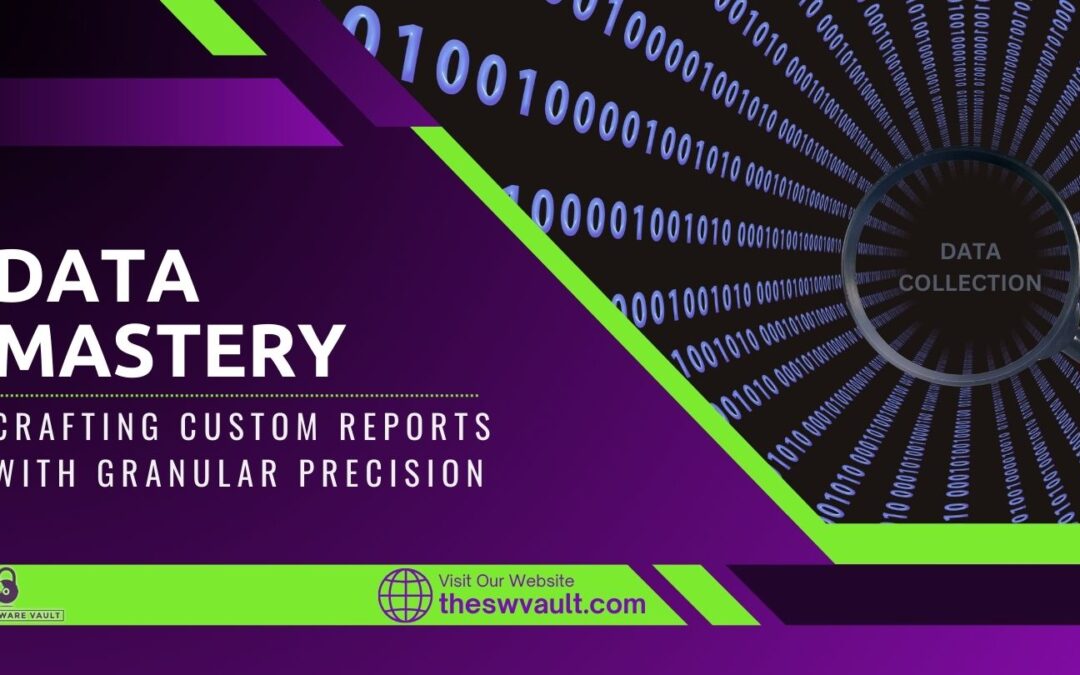Within the domain of nonprofit grant reporting, data collection stands as a critical piece that shapes the narrative of impact and success. Working with various organizations, we noticed that many nonprofit organizations have tailored their data capture methods to fit the specific requirements of individual grantors, leading to siloed information and limited flexibility in reporting. But what happens when the grantors change and the new grantors require data reported in a different format and measures?
Well, you are in luck! There lies a transformative approach—prioritizing accurate and granular data collection that offers flexibility in generating reports catering to diverse grantor requirements.
Let’s explore 3 reasons why this shift in data strategy is crucial for nonprofits seeking to streamline grant reporting processes and showcase their impact effectively.
1. Making a Paradigm Shift Towards Flexibility
Gone are the days of rigid data collection practices solely designed to meet the stringent criteria of each grantor. Embracing flexibility in data capture allows your organization to gather comprehensive and detailed information that transcends specific grant requirements. By focusing on accuracy and granularity from the outset, your organization will be able to build a robust foundation that accommodates varying reporting needs seamlessly. Even if the data is not required by a grantor but it could benefit your organization, capture the data for future use. As the saying goes, “Stay ready so you do not have to get ready”.
2. Empowering Data-Driven Decision-Making
Accurate and granular data serves as a catalyst for informed decision-making for your organization. When data collection is approached holistically, your organization will have the capability to derive deeper insights, identify trends, and measure outcomes across multiple programs and initiatives. This wealth of detailed data not only enhances your internal operations but also empowers your organization to adapt and evolve in response to changing grantor expectations and constituent needs.
3. Amplifying Impact Through Customized Reporting
Flexibility in data collection paves the way for customized reporting that resonates with diverse grantors. By capturing data at a granular level and maintaining accuracy throughout, your organization can easily tailor your reports to highlight specific metrics, outcomes, and impact indicators based on individual grantor preferences. This adaptability not only streamlines the reporting process but also strengthens your relationship with your funders by showcasing alignment with their unique goals and priorities.
Future-Proofing Grant Reporting Processes
By prioritizing accurate and granular data collection practices that prioritize flexibility, your organization will be able to future-proof their grant reporting processes. This forward-thinking approach enables your organization to respond agilely to evolving grant requirements, scale your impact measurement efforts, and demonstrate transparency and accountability consistently. Moreover, it fosters a culture of data-driven excellence that could position your organization as a leader in the nonprofit sector.
In conclusion, the strategic shift towards collecting accurate and granular data that offers flexibility in reporting will be a game-changer for your organization as it navigates the complex landscape of grant reporting. By embracing this approach, your organization would be able to elevate its impact measurement capabilities, streamline reporting processes, and cultivate stronger relationships with grantors.
Ultimately, the power of flexible data collection lies in its ability to propel any nonprofit, including yours, towards greater efficiency, transparency, and impact in their mission-driven endeavors.
Reach out to our Software Vault Team to discuss how to amplify your data collection processes in order to transparently and confidently express your organization’s impact. We’re here to support organizations like yours in effectively adapting technology that can help amplify your impact.
Disclaimer: This blog post is intended for informational purposes only and does not constitute professional advice. Organizations should evaluate their specific needs and consult with technology experts before making any decisions.

